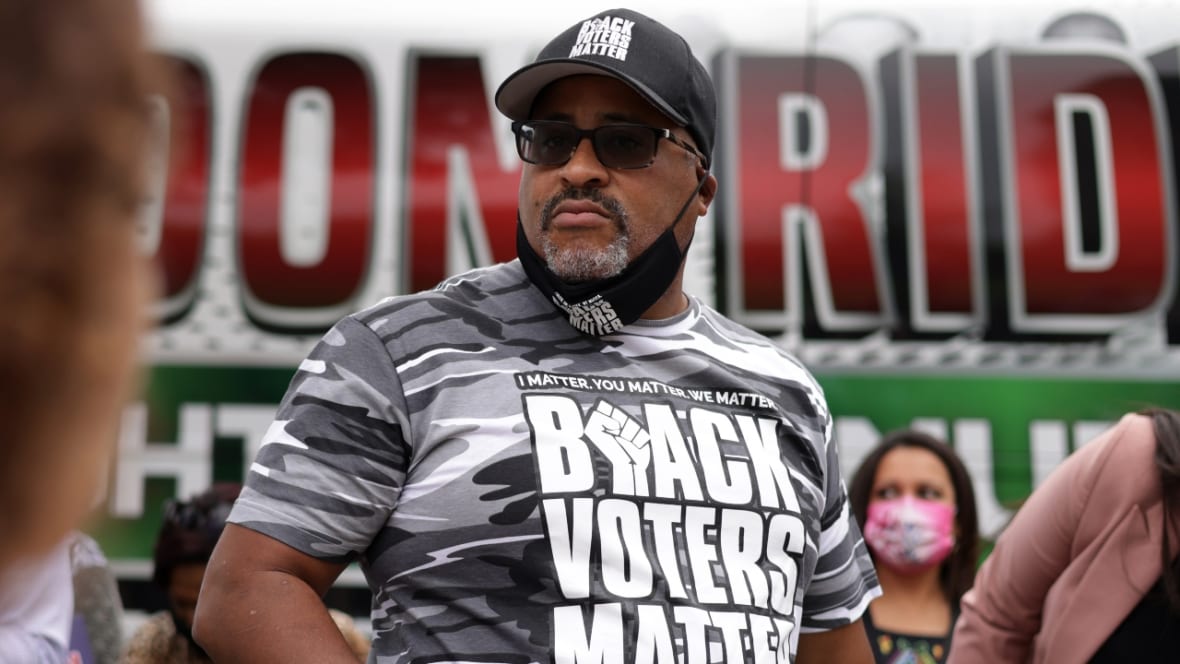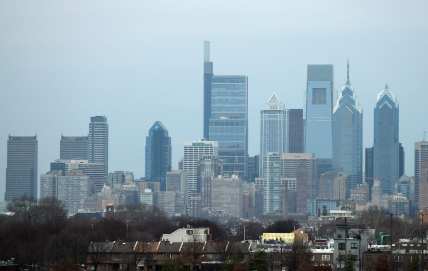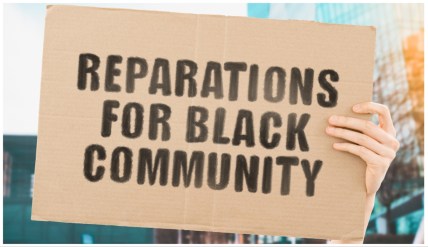Black Voters Matter launches fund to study Black reparations efforts
The national voting rights group notes that reparations recognize the 400-year history of racial injustice and oppression against Blacks in America.
The group Black Voters Matter has established a pioneering initiative, the Black Reparations Fund, to support local efforts to ensure Black people get compensated for the ongoing damages of slavery.
Cliff Albright, the co-founder of Black Voters Matter, said his national voting rights group believes issues can sometimes be resolved more quickly locally, Yahoo News reported.
“We’re focusing on places that have already made some advances and may in fact already have a policy,” Albright said, according to Yahoo. He said those places may now be “at this critical middle stage of, OK, once you have a policy, and once you’ve got a commitment to establish a task force, there’s the resource issue. How do you make sure that process actually moves forward?”

According to Black Voters Matter, reparations recognize the 400-year history of racial injustice and oppression against Black people in America. Black people have suffered from systemic racism and its destructive impact for decades, from enslavement to Jim Crow legislation to redlining and mass incarceration.
The Black Reparations Fund, a grant program, launched on June 28, and will give over $150,000 to Asheville, North Carolina, and Boston, Massachusetts — just two cities that have started tackling the reparations issue. An additional $50K in in-kind services, such as technical assistance, will be given to each grantee for a total of $200K in support.
Following the murder of George Floyd in Minneapolis in 2020, the city of Asheville authorized reparations for its Black citizens, not in direct payments but in community investment. In a unanimous 7-0 vote, the Asheville City Council approved a resolution to develop “policy and programs that will establish the creation of generational wealth and address reparations due in the Black community.”
Boston formed a reparations task force in February and assigned 10 members to the group.
Albright contended that both cities have made some strides, and said the Black Reparations Fund will keep the momentum going.
He acknowledged that things aren’t always easy at the local or federal levels but added: “We do believe that we can get some victories and some progress, which in turn will keep the federal discussion moving.”
Federal reparations law has lain dormant for many years. H.R. 40, a House measure first presented by late Michigan Rep. John Conyers, seeks to establish a national commission to research and implement reparations. It was submitted in 2021 by Rep. Sheila Jackson Lee, D-Texas.
In May, Rep. Cori Bush, a Democrat from Missouri, proposed H.R. 414, the Reparations Now Resolution, which calls for federal reparations. The bill would mandate compensation to the descendants of enslaved Africans totaling up to $14 trillion.
After studying reparations for Black citizens for two years, the California reparations task force issued its final report on June 29.
The historic study outlines 115 recommendations made to the Legislature, some of which deal with individual compensation and policy improvements in health care, employment, education and policing. The efforts unquestionably require affirmative action.
While most Black Americans favor reparations, a Pew Research poll indicated that 68 percent of Americans reject them, with Republicans being the most vocal opponents.
Albright acknowledged that local measures won’t make up for the absence of federal legislation. He contended they wouldn’t be talking about these local measures if there hadn’t been previous momentum toward securing federal law, as these two things reinforce one another.
“The call for action is urgent as white supremacy grows, and diverse voices are pushed out of public classrooms, Black homeownership rates decline, and student loan forgiveness and affirmative action are at risk,” Albright said via Black Voters Matter.
He said that reparations efforts must urgently address underinvestment in Black communities and that BVM supports concepts advancing the closing of the racial wealth gap. “Ideas that put us in a position to thrive, not just survive,” he added. “Waiting for a federal response is no longer an option.”
TheGrio is FREE on your TV via Apple TV, Amazon Fire, Roku and Android TV. Also, please download theGrio mobile apps today!


